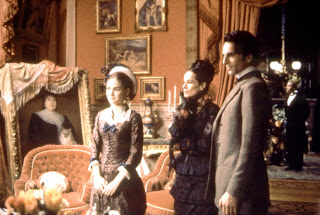The same criticism was leveled against Pamela when Richardson's book came out. If her master is so bad, why is she sticking around? Could it be that she...has an ulterior motive?
I address that issue in a Votaries post, namely that moving around the eighteenth-century world wasn't as easy as it is for us moderns--with our buses and taxis and cars and motorcycles.
Still, to be fair, I once flipped the story of Cinderella in my head so all the male characters were female, and all the female characters were male and the first problem I had was, "Why doesn't he leave?"
Historically-speaking, it is easier for CinderBob to leave than Cinderella since CinderBob could go join the army or go fishing or get some inheritance and go buy land or get on a boat to a different country or fight for his inheritance in the courts. He might end up like Jack the Beanstalk but still, he has options.
But Cinderella, unless she pulls a
Shakespeare-girls-dressed-as-boys-going-into-the-woods stunt could only be a
milliner, a prostitute, or a governess. The Brontes would describe for you the horrors of the last option. (All of these options are based on CinderBob and Cinderella being members of the upper echelons of society. Lower-down, they actually have more options. Too low down, they have none.)
One more option: she could marry well.
CinderBob might stay. And Cinderella might stay but for reasons that imply she is far wilier than anyone realizes.

